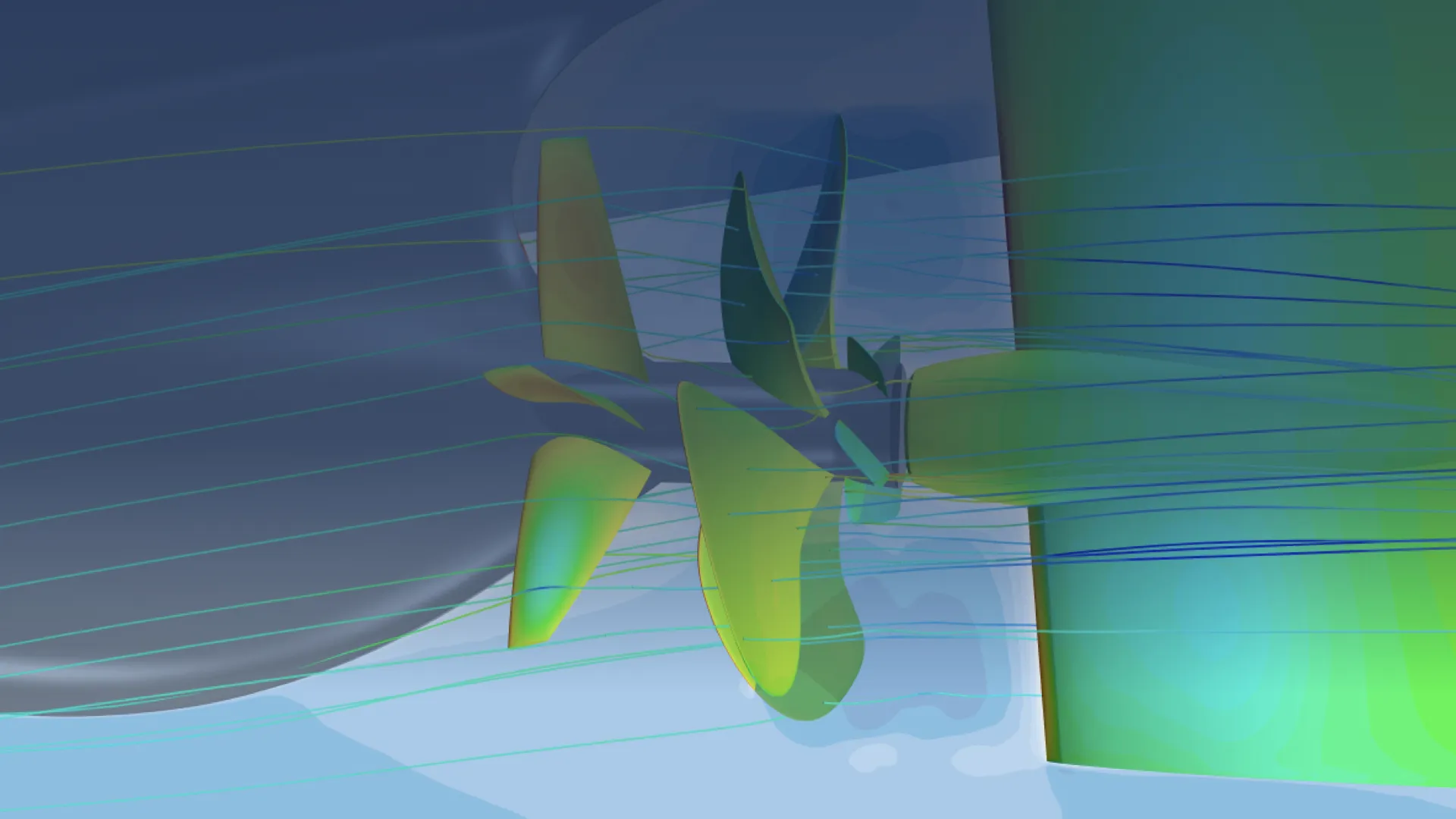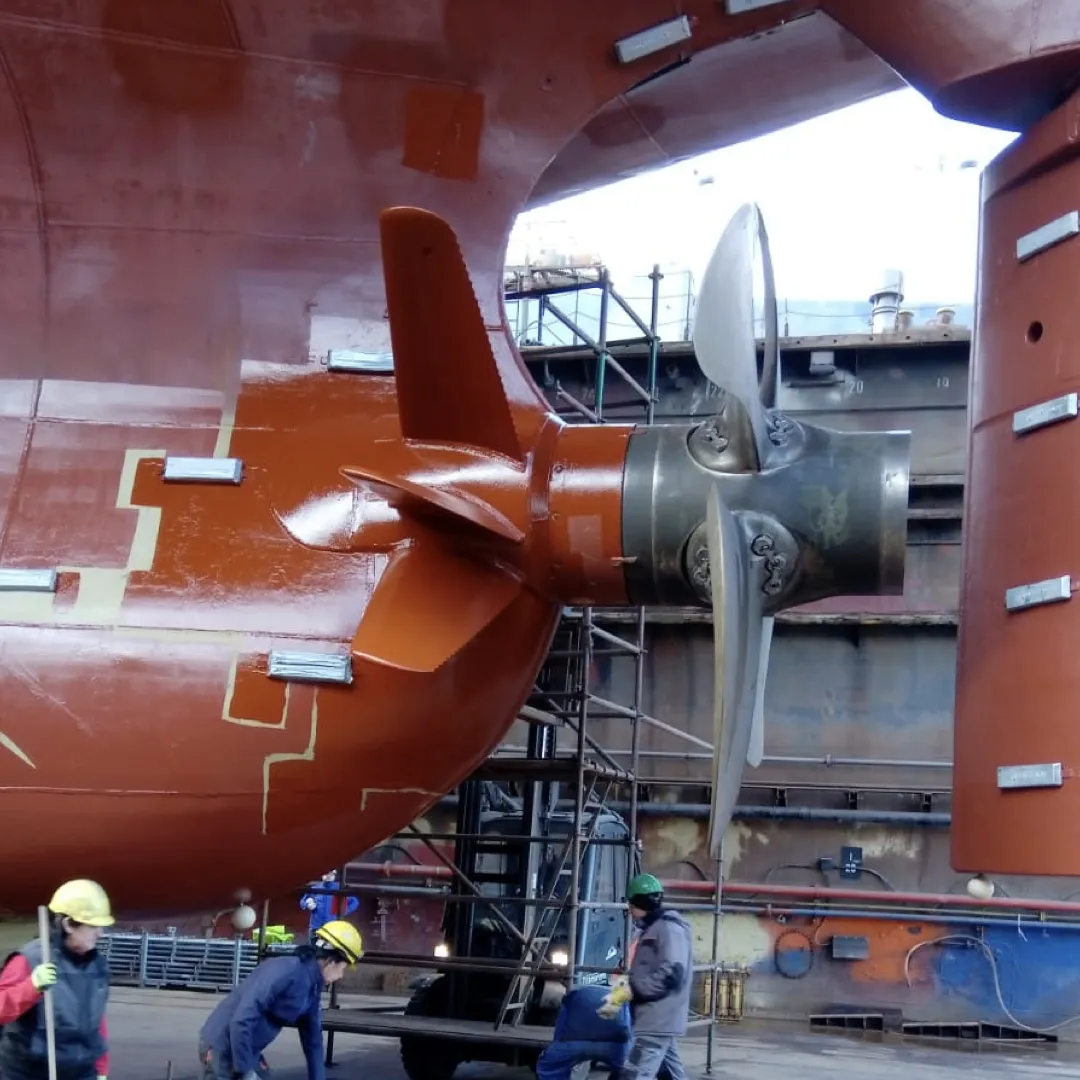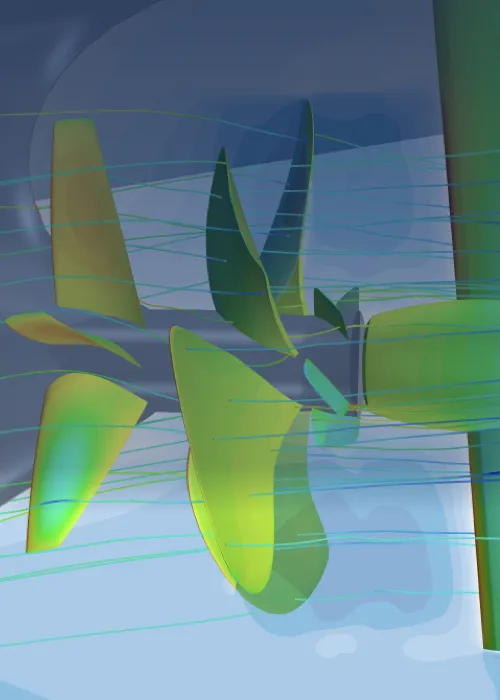CFD Simulations for Your Ship
Optimize your ship’s performance with the advanced Computational Fluid Dynamics (CFD) simulations from our partner. A highly precise numerical model of your ship is created, followed by detailed simulations of its behavior in a digital towing tank. This approach enables thorough analysis of optimization possibilities in hydrodynamics and propulsion. For a comprehensive approach, consider the Express Analysis: an in-depth feasibility study. This includes the use of CFD simulations to identify improvements below the waterline, while extensive feasibility analyses are conducted to evaluate above-water innovations.

Hydrodynamics
The CFD simulations in the field of hydrodynamics provide a highly accurate analysis of your ship’s hydrodynamic performance. The performance of the bow shape is examined, as well as key areas such as trim and the aft section, including propulsion components such as propellers, nozzles, and rudders. This analysis of the hull shape provides insight into the hydrodynamics of the fore and aft sections, including the complex interactions between various underwater appendages. The simulations demonstrate how these components interact under different sailing conditions, such as variations in speed and load.
Propulsion
With the CFD simulations focusing on propulsion, the emphasis is solely on the design of critical propulsion components, such as ship propellers, nozzles, and rudders. Upon request, Energy Saving Devices (ESDs) also participate in this analysis, such as a Pre-Swirl Stator (PSS) depicted in the photo on the right. This service proves essential when specifically seeking an optimized propeller design, requiring insights for selecting the appropriate nozzle and/or rudder profile, or when further reducing CO2-emissions with an Energy Saving Device.

Express Analysis
Explore the Express Analysis: a thorough feasibility study that examines potential energy-saving solutions for your current ship or fleet. This study addresses both underwater solutions and innovations above the water surface. While the current focus is on existing ocean and coastal vessels, the expertise extends further. Similar Express Analyses are conducted for various maritime sectors, including inland navigation, passenger shipping, fishing, dredging, offshore, and marine. If desired, assistance can be provided up to and including implementation. Assistance is also available in designing new, future-proof ships by selecting alternatives.

CFD Simulations for Your Ship
Optimize your ship’s performance with the advanced Computational Fluid Dynamics (CFD) simulations from our partner.

Hydrodynamics
The CFD simulations in the field of hydrodynamics provide a highly accurate analysis of your ship’s hydrodynamic performance.
The performance of the bow shape is examined, as well as key areas such as trim and the aft section, including propulsion components such as propellers, nozzles, and rudders.
This analysis of the hull shape provides insight into the hydrodynamics of the fore and aft sections, including the complex interactions between various underwater appendages.
The simulations demonstrate how these components interact under different sailing conditions, such as variations in speed and load.
Propulsion
With the CFD simulations focusing on propulsion, the emphasis is solely on the design of critical propulsion components, such as ship propellers, nozzles, and rudders.
Upon request, Energy Saving Devices (ESDs) also participate in this analysis, such as a Pre-Swirl Stator (PSS) depicted in the photo on the right.
This service proves essential when specifically seeking an optimized propeller design, requiring insights for selecting the appropriate nozzle and/or rudder profile, or when further reducing CO2-emissions with an Energy Saving Device.

Express Analysis
Explore the Express Analysis: a thorough feasibility study that examines potential energy-saving solutions for your current ship or fleet.
This study addresses both underwater solutions and innovations above the water surface. While the current focus is on existing ocean and coastal vessels, the expertise extends further.
Similar Express Analyses are conducted for various maritime sectors, including inland navigation, passenger shipping, fishing, dredging, offshore, and marine. If desired, assistance can be provided up to and including implementation.
Assistance is also available in designing new, future-proof ships by selecting alternatives.
